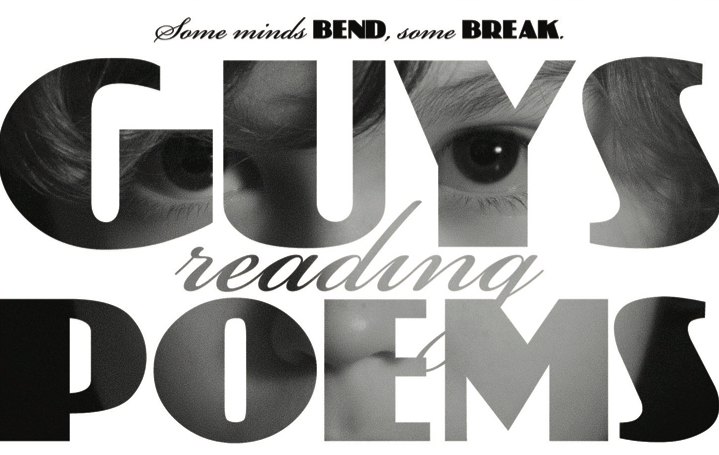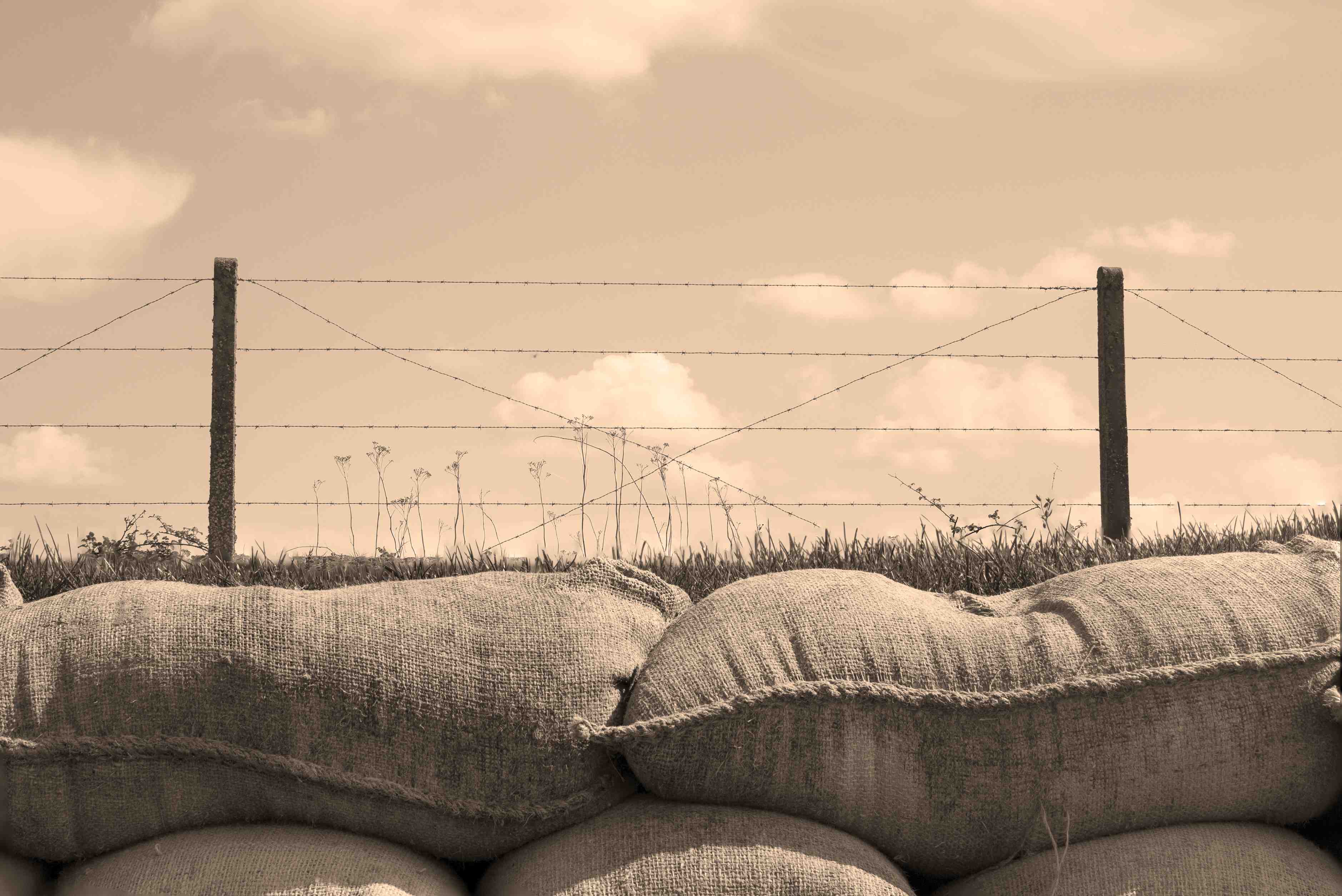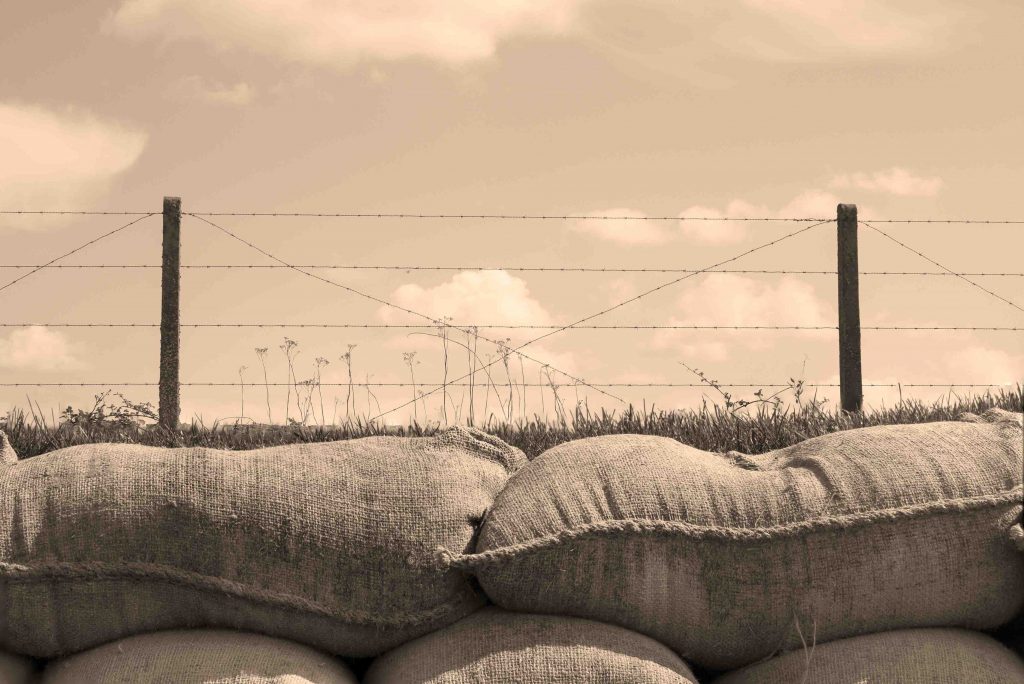By Allyson Mackender
Harold Monro (1879-1932) was born in Brussels and did not settle down for most of his life. As he moved around the European continent, through Ireland and England, Monro was characterized as a “moody young man who brooded over himself, and not liking what he found, imagined that he would discover something better under another sky” (Monro vii). Insecurities inherent to human nature and anxieties regarding monotony were all too familiar to Monro. His sense of impatience is perfectly captured in the final stanza of his poem, “Introspection”:
Always busy with procrastination,
Backward and forward they move in the house,
Full of their questions
No one can answer.
Nothing will happen… Nothing will happen… (Monro 82)
The stillness and sense of inactivity that Monro imagines taking place in the house he is pondering speaks to his own values and apprehensions. He exemplifies the repetitiousness in the house as a sort of insanity, where questions are asked and never answered and people move forward, only to retrace their steps. Anxiety about working and movement, yet never making progress, is pervasive across the human psyche. In this passage, Monro speaks to the human condition of always appearing busy as a sort of indicator of success, yet the frequent inability to actually get anything done. Not only does this passage reflect Monro’s own anxieties, it provides an insight into the human psyche that transcends culture and time and suggests the facade of busyness may be a manifest indicator of an unease caused by restlessness.
Despite Monro’s disquiet, which forced him to relocate frequently, he eventually settled and in 1911 started a periodical called The Poetry Review. Just two years later he opened The Poetry Bookshop, and although neither of these ventures provided him with any source of income, Monro’s genuine interest in the written word impassioned him to continue these pursuits. As time went on, Monro became “the unofficial representative of poetry,” founding various periodicals and serving as a sort of mentor to other poets of the era. From a simply biographical standpoint, Monro embodies a key characteristic that many people strive to achieve: the pursuit of passion. Although Monro received no commercial benefit from his career as a poet, shopkeeper, and editor, he continued this line of work because it was what he felt most fervent about. It is truly inspiring to consider a career that is not based on capital gain, but rather is pursued because of one’s sincere interest in the field of his or her choice. Monro’s poem, “A Word,” beautifully captures his connection to the foundations of poetry – words. He writes of the impact that words have on him, asking, “Have you ever loved a word/Better than the man who spoke it?” This line alone shows Monro’s love for the written and spoken word and makes it easier to understand his devotion to his career.
Yet another facet of Monro that is interesting to consider is the multiplicity of his ventures and the paradox this created in his persona. Businessmen and poets generally do not conjure up images of similar people. A businessman or shopkeeper is inspired by capital, while a poet is more easily perceived as an artist less concerned with economic advantage and more concerned with the romance of the written word. F.S. Flint highlights the contradictory nature of Monro, writing:
“It is hardly possible to state one of his characteristics without immediately being reminded that in him too was its opposite. He was hardworking and lazy; he was generous and mean; he was a lover of freedom and a tyrant; unconventional and conventional; a bohemian and bourgeois” (Monro vi).
The way that Monro struggled to balance each of these unique characteristics is something that most humans can relate to. While searching for identity, it is human nature to uncover and ponder many pieces of oneself, often times which are in direct contrast with another piece. Yet, to live with these contradictions can be challenging. It is natural to desire to have a clear and easily perceived identity, and one riddled with opposites is neither of those things. Hence, the juxtaposed identities of Monro further demonstrate how he struggled to create an identity and find balance in his various interests and personal characteristics.
In addition to considering the biographical pieces of Monro’s life in relation to universal human nature, it is also necessary to consider the subject matter of his poems. Nearly every period of human history has been marked by war. The earliest Epic poets, like Homer and Virgil, celebrated war in their texts, creating a foundation for literature honoring war and those who fight in it. Monro continued this tradition of wartime literature in the late 19th century and early 20th century. However, Monro’s approach to war poetry differed from his predecessors because he did not celebrate the glory and honor that is often associated with war. Rather, he made it his personal mission to write realistic poetry.
Monro’s most famous piece of war poetry, entitled “Youth In Arms” is split into four separate sections, the first untitled, the second called ‘Soldier,’ the third named ‘Retreat,’ and the final titled ‘Carrion.’ The first stanza of the poem reads:
Happy boy, happy boy,
David the immortal willed,
Youth a thousand thousand times
Slain, but not once killed (Monro 166)
This stanza appeals to the innocence and resiliency of youth. By repeatedly referring to the young man as “happy,” his innocence is confirmed. Not only does happiness suggest a lack of corruption or negative experience, the choice to use the word itself suggests blissful ignorance. The man could be described as possessing any number of qualities, but the choice to use “happy” suggests the naivety of the subject. In the second section of the poem, ‘Solider,’ the youthful innocence of the young man is again reiterated when Monro states, “you will laugh as you march to the fight” (Monro 167). This demonstrates the naivety of the soldier who is unaware of the atrocities of war. By depicting the soldier in this fashion, Monro appeals to the masses’ perception of the war. Written during World War I, many civilians did not have much information about what was happening universally. Monro captures this ignorance throughout the poem describing the fallen soldier as a “flower without pain” (Monro 167). Monro’s war poetry speaks to the true sorrow that accompanies war, which takes the lives of many young civilians. By drawing on his readers’ empathy, Monro provides a more meaningful critique of the war, especially as the poem continues. In the final stanzas of “Youth In Arms,” Monro no longer characterizes the soldier as a naïve and innocent man, but he begins to expose the true horrors of war. In particular, the last stanza of Monro’s poem paints a particularly gruesome image of death, more violent than previously described. Monro writes:
Hush, I hear the guns. Are you still asleep?
Surely I saw you a little heave to reply.
I can hardly think you will not turn over and creep
Along the furrows trenchward as if to die (Monro 170).
The question, “Are you still asleep?” speaks to the very first stanza of the poem that suggests the soldier is “Slain, but not once killed” (Monro 166). By asking the soldier the above question in the final stanza Monro suggests the permanence of death that before was rejected as the innocence of a young life was preserved. Furthermore, the image of the young man creeping toward his own death is gruesome and exposes the horrors of war. The loss of innocence that unfolds as the poem progresses is demonstrative of the true reality of war and provides a political commentary that parallels Monro’s distaste for war, despite his direct involvement in it. By exposing the true realities of war, Monro artfully captures an event that is definitional in many men’s lives.
Perhaps more notable than his biographical notes and an analysis of his texts is the very brief commentary written by T.S. Eliot, which prefaces a collection of his texts published shortly after his death. Eliot declares that Monro is one of the most unique poets to ever write, and that none of his contemporaries could capture the “sincere and tormented introspection” that is so crucial to an understanding of mankind (Monro xvi). Furthermore, a short look into Monro’s life and a quick close reading of a few of his poems does not do him justice. Eliot writes, “There is no one poem, no few poems, which I could point to and say: this will give you the essence of Monro” (Monro xvi). This statement again demonstrates how truly complex Monro was; not even his own writing could fully depict the multiple facets of his character. He not only captured the complex human spirit, riddled with restlessness and anxiety, he placed himself within the tradition of wartime poets who have documented one of the crucial moments in world history. Monro’s poetry speaks to the nature of mankind and allows its readers to find a piece of themselves in the lines of his poems. He captures the image of man by writing about commonplace and domestic occurrences, where the reader can easily place themselves, but also by speaking to a more intimate and personal understanding of these occurrences and their bearing on the human spirit. Eliot concludes his critical notes by writing, “like every other good poet, [Monro] has not simply done something better than anyone else, but done something that no one else has done at all” (Monro xvi). Monro has uniquely demonstrated the multiple complexities of human nature and has artistically and revolutionarily explored what it means to be human.
Source Used:
Monro, Harold, F. S. Flint, and T. S. Eliot. The Collected Poems of Harold Monro. Ed. Alida Klemantaski. Monro. London: Cobden-Sanderson, 1933. Print.
Allyson Mackender is from Denver, Colorado. She will graduate from Trinity University in May 2017 with a Bachelor of Arts in English. She is an intern at San Antonio’s Gemini Ink, an organization that helps individuals and communities tell their stories by providing them with access to writing classes and literary seminars and lectures. After graduation, she plans to pursue a career in writing, hopefully as a features editor. Additional writing samples can be found online at her Odyssey profile.












